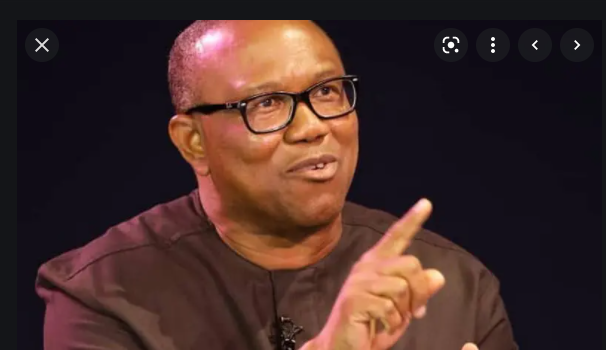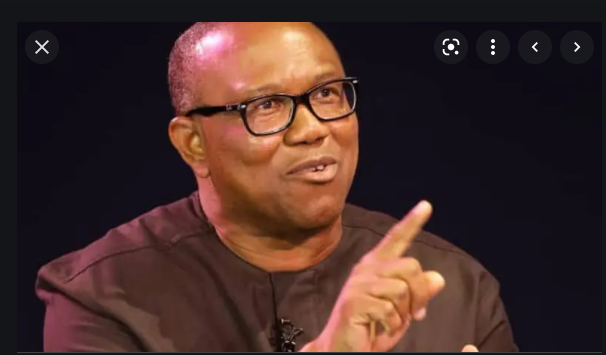

In Houston, DC, Obi Sparks Diaspora Concern Over Mega Theft Of Nigeria’s Oil
FeaturedSpecial Reports September 4, 2022 admin

By Emmanuel Ogebe by
– US Nigeria Law Group (USNLG) warns of systemic and systematic economic sabotage of south’s oil in favor of Niger


 In a clinical analysis for which he is known, Mr Peter Obi gave a jarring account of Nigeria’s dire economic straits that triggered grave concern in several US cities of his POTUSA speaking series.
In a clinical analysis for which he is known, Mr Peter Obi gave a jarring account of Nigeria’s dire economic straits that triggered grave concern in several US cities of his POTUSA speaking series.
He said that out of all the OPEC countries, only Nigeria was not meeting its supply quota while other countries were angling for more (except Venezuela due to sanctions.)
In July Nigeria did not supply 717,000 barrels per day out of its 1.8 million bpd quota.
He stated that this amounted to lost revenue of $22,227,000 daily at the rate of $110 per barrel which in a month totaled over $2.4Billion.
The Labour Party Presidential candidate surmised that using an average exchange rate of
N550, this amounted to in excess of one trillion lost in the month of July alone.
Yet he revealed that
N1.6 trillion was Nigeria’s Jan-Apr. income while it incurred N4 trillion expenditure resulting in over N3 trillion deficit.
Gov Obi declared that this was not oil bunkering but
“Official stealing” not just by “ship in territorial waters”.
Confirming this, a retired Nigerian American oil executive, an engineer who has served around the world and attended the Houston event, said that given what is currently going on in Nigeria only super tankers or trawlers have the capacity for the “industrial scale oil theft”.
In Washington, another Nigerian American who pleaded anonymity due to his privileged access to sensitive information claimed that during the COVID lockdown, Nigeria was still recording high amounts of fuel subsidy payments. He said that the publicly published figures were low but the actual logged and paid amounts on the records were higher.
Furthermore, he alleged that a ship bearing petroleum would dock at the port but not discharge its cargo, then sail out and return in the same week under a different name and thereby double bill subsidy payments for the same oil cargo.
US Nigeria Law Group recalls that two decades ago, a US ambassador reported flying over Niger Delta and seeing ships stealing oil in broad daylight.
Similarly it has been reported that oil stolen from Nigeria was sold as far away as in America.
In a meeting in 2014, President Jonathan disclosed to us that he personally solicited President Obama’s help to try to stop the oil theft. However Jonathan lamented that the report submitted by the consultant Obama dispatched to the Niger delta was watery and no more than bar room gossip.
We note by contrast the abject failure of Gen Buhari’s regime to tackle fuel theft more especially when he, unlike Jonathan, is unconstitutionally occupying the post of oil minister.
Incidentally, Nigeria’s Chief of Naval Staff Vice Admiral Awwal Gambo has also confirmed the existence of what Obi called “official stealing” per the report below:
“Oil Theft: Figures Being Bandied Are Impractical, Says Chief Of Naval Staff
Channels Television
There is a significant miscalculation in determining how much Nigeria is losing in terms of oil theft because oil losses due to other factors are often lumped together as theft.
The Chief of the Naval Staff, Vice Admiral Awwal Gambo, told Channels television’s Ladi Akeredolu-Ale on our current affairs programme, Newsnight, that these losses are then blamed on security agencies’ lack of effectiveness.
“We need to understand the differences between oil theft and oil losses. While oil theft is siphoning crude oil from vandalised pipes into barges, oil losses occur when there is known production, especially during shut-ins and force majeures as the Federal Government does not earn the desired revenue it should,” he noted.
“Losses also occur as a result of metering errors on the operating platforms as read. But the volume of crude oil shot-ins from non-production is often added to figures for oil theft instead of declaring them as oil losses. This should not be.”
Alluding to reports that between 20,000 and 200,000 barrels of crude oil are being stolen daily in Nigeria, Admiral Gambo said 100,000 barrels of crude is the equivalent of 15.8 million litres of crude oil requiring a five-ton barge to make 3,160 trips to convey to a mother vessel within a day.
“Most of these claims are definitely outrageous and unrealistic,” he maintained.
The naval chief insisted that even if there were enough barges to do this, it is highly unlikely given the heightened presence of security forces in the creeks and estuaries as well as the subsisting operations specifically targeted at this type of criminal activity.
(For the full interview with the Chief of Naval Staff, do watch Newsnight, Monday, 29th August 2022 at 9 pm on Channels Television.)”
The Benue-born oil executive in Houston said that while there’s official stealing, the fact remains that security forces are also engaged in surreptitious criminality as well.
Recently, media reported the arrest of a Norwegian ship stealing oil in Nigeria. Norway’s Sovereign Wealth Fund exceeds $1Trillion while Nigeria’s Sovereign Wealth Fund is about $2Billion (around less than 2%.)
Besides the criminality, whether by cartel or government cabals, US Nigeria Law Group wishes to raise the alarm about long-term systematic sabotage of Nigeria’s oil sector.
Our archives show that as far back as 2011, a prominent social media commentator stated, “While we wait for the lies of the Minister of Petroleum & the Group Managing Director of NNPC, that “the nation’s refining capacity would receive significant boost in the next 3 years,” with the up coming 3 new refineries and the TAM of the traditional refineries, we are told with certainty, by no other neighbor than Niger Republic that they would begin exportation of refined petroleum products to Nigeria by the end of this year.”
Over a decade later, despite billions of dollars spent, Nigeria’s refineries are non-functional.
However, quite alarming is the report on Niger. According to one writer, “Since his emergence as the President of Nigeria in 2015, President Buhari has overwhelmingly opened Nigeria’s financial vault into providing strategic infrastructural development for the Nigerian neighbours, despite the nation’s poor financial standing.
1. The projects executed in the last seven years include a $2billion standard gauge railway project the Nigerian government is constructing from Kano to Maradi in Niger Republic, a project President Muhammadu Buhari flagged off in February, 2021. The project, which was awarded to a Portuguese Construction Company, Mota-Engil, involved the construction of 284 kilometres standard-gauge line with 12 stations from Kano in northern Nigeria to Maradi in landlocked Niger Republic. The project was funded through an external loan of $4.054b, approved by the National Assembly, in 2018.
2. In July 2018, Nigeria and Niger Republic agreed to collaborate to construct an oil pipeline and refinery. They agreed that while the proposed refinery will be located in Katsina State, northern Nigeria, crude supply will be through the pipeline from Niger Republic’s oilfields in the Ténéré desert. The MoU for the two projects, which are expected to cost about $2billion, was signed by the two countries’ energy ministers and witnessed by Buhari and his counterpart from the Republic of Niger, Mahamadou Issoufou.
3. In November 2020, the Nigerian government, through the Ministry of Petroleum Resources, headed by President Buhari himself, signed a $2b refinery project to import fuel from Niger Republic, a country that only joined the league of oil-producing countries in 2012.”
The above reports are stunning as well as concerning. Why would a nation abandon its oil fields and refineries and take massive loans to invest in another country’s?
The $4Billion dollar loan obtained for the Niger rail could have built a refinery in Nigeria.
As the Nord stream euro-Russian pipeline saga shows, geopolitical dynamics can distort cross border infrastructural configurations. European delegations are now prospecting Niger Delta for alternative oil and gas sources following Ukraine-Russia war sanctions.
It is not far fetched to conclude after wasting billions in search of oil in the north, certain vested interests have fixated on Niger’s oil to the detriment of the south south delta’s.
Beyond mere criminality, we are looking at economic sabotage on a gargantuan scale. Instead of nation-building, we’re seeing national deconstruction.
If the north does not have oil, then the south must not have oil either and the north will appropriate the oil of Niger.
Until the Buhari regime is gone, we may never know the full extent of the looting, sabotage and destruction of Nigeria’s oil sector. What is known is that possibly for the first time, the NNPC was unable to remit funds to the government and dollars are so scarce that the exchange rate peaked at N700+ to $1 under Buhari as Minister of Petroleum.

